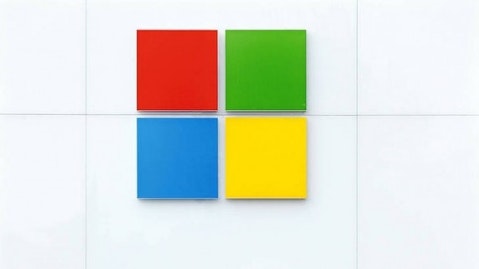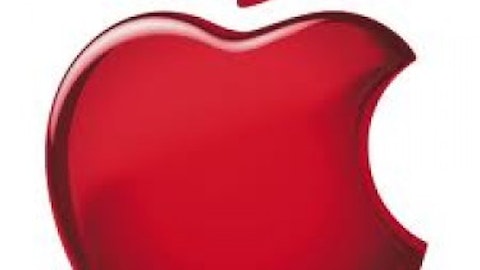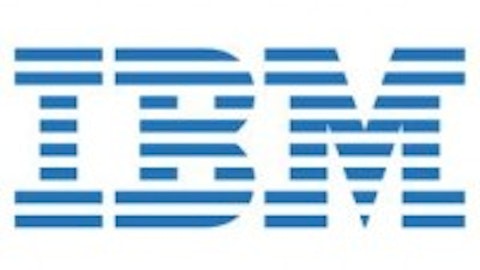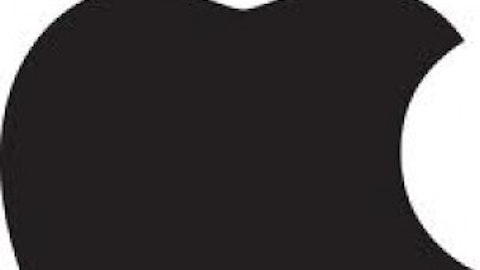Microsoft Corporation (NASDAQ:MSFT) has found itself the target of yet another breakup call. This time, a Nomura analyst is arguing that the Windows-maker should spin off its Xbox and Bing businesses, and in the process, draw the company’s focus back to enterprise software.
A Microsoft Corporation (NASDAQ:MSFT) breakup call is nothing new — analysts and fund managers have argued for it in the past. And given the company’s monstrous size, it isn’t likely to happen. But those calling for it don’t seem to understand the larger Microsoft Corporation (NASDAQ:MSFT) story.
Bing’s long-term value
When it comes to the investing community, it seems that everyone hates Bing. Hedge fund manager David Einhorn called for Microsoft’s CEO Steve Ballmer to step down back in 2011. In particular, Einhorn was critical of the money Microsoft had poured into Bing.
On paper, Bing certainly does appear to have been a terrible investment. Over the years, Microsoft dumped billions into Bing with little to show for it. Google Inc (NASDAQ:GOOG) remains dominant in Internet search, while Microsoft’s online services division (a division composed mostly of Bing) remains unprofitable.
But Bing has great long-term, strategic value for Microsoft Corporation (NASDAQ:MSFT). Last fall, Ballmer said he was glad Microsoft made the investment in Bing, and he should be.
As the technology landscape changes, search is becoming increasingly important. With a search engine (and all the technology that entails), a company is better positioned to crack into the growing trend of “big data.”
The trend towards big data one is the key reasons former hedge fund manager Stanley Druckenmiller has Google as one of his largest investments.
By leveraging its expertise with search (which involves dealing with massive data sets), Google Inc (NASDAQ:GOOG) should be well positioned to profit from this growing trend, which McKinsey called the next big frontier.
Google is already said to be using big data in its hiring process — scanning vast quantities of data on employees in order to find the best traits for its workers. In time, Google Inc (NASDAQ:GOOG) could bring this expertise to other businesses, like health care.
Google Now, Google’s virtual personal assistant, has been seen as being superior to Apple Inc. (NASDAQ:AAPL)’s Siri because (unlike Siri) it can anticipate its user’s actions. Applications like this are only possible because of Google’s data.
It may be hard to envision right now, but in the coming years, Bing will bring Microsoft Corporation (NASDAQ:MSFT) all sorts of strategic advantages. Perhaps, that’s why Yahoo! Inc. (NASDAQ:YHOO) is said to be trying to get out of its search deal with Microsoft.
Yahoo! is getting back to search
Since 2010, search results on Yahoo! Inc. (NASDAQ:YHOO)’s website have been generated with Microsoft’s Bing. Current Yahoo! CEO Marissa Mayer has reportedly been trying to get out of that deal since she took the reins last year.
According to Bloomberg, Mayer would like to go with Google, although its hard to envision that taking place given the potential antitrust concerns (combined, Google and Yahoo! control nearly 80% of the search market).
Although Yahoo! Inc. (NASDAQ:YHOO) has shifted away from search heavily in recent years, it wouldn’t surprise me to see it decide to get back into that business. Mayer’s vision for the future of Yahoo! seems particularly search-centric. In fact, Mayer has said she would prefer to see a world where users are able to take their search history from one provider to the next:
“Think about the searches that you’ve done over the past 10 years…just as insightful in terms of they were your thoughts…expressed your way…fundamentally they’re yours, and if you can take that history, pick it up and move to a different search provider…that’s something that should fundamentally belong to you. You’re allowing the service to access it, in order to get better information and better results.”
Here, Mayer is clearly showing a long-term interest in the power of search technology. That speaks to the value of what Microsoft has in Bing.






